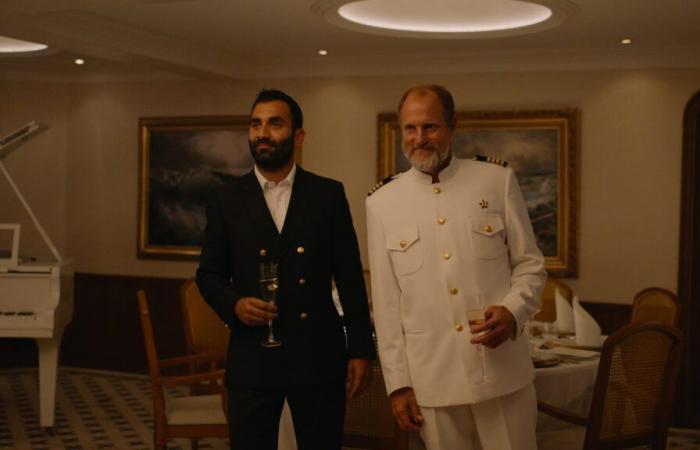
Arte is broadcasting this evening Without Filter (Triangle of Sadness), a satirical comedy directed by Ruben Östlund, which won the Palme d'Or at the 2022 Cannes Film Festival. This film uses scathing humor to denounce the excesses of the ultra-rich and the absurdities of contemporary society, following a luxury cruise where the privileges of the elites collapse into grotesque chaos.
A shipwreck of privileges
Without filter features Carl (Harris Dickinson) and Yaya (Charlbi Dean, who died prematurely), a couple of models and influencers invited on a sumptuous cruise on a luxury yacht, in the company of an eccentric clientele made up of billionaires and influential personalities.
This journey, conceived as an enchanted parenthesis, quickly turns into a nightmare when unexpected events – and a cult dinner scene – plunge passengers into a situation that spirals out of control. The roles are reversed, and appearances are cracked, revealing the selfishness and hypocrisy of each person.
In depicting this insensitive and self-centered elite, Ruben Östlund uses the cruise setting as a metaphor for social inequalities. The film, through absurd situations, mocks the privileges and codes of high society while highlighting the flaws of a fashion and luxury industry obsessed with image and status.
A controversial palm
The coronation of Without filter at the 2022 Cannes Film Festival was not unanimous. By winning the Palme d'Or, Ruben Östlund joined the select circle of directors who have been awarded twice at Cannes, following his success in 2017 with The Square. However, this victory sparked passionate debates. Viewers and critics were divided on the tone of the film, with some praising the boldness of the satire, others deeming it too exaggerated and lacking in subtlety.
The black comedy scenes, notably the memorable sequence of the chaotic dinner in the middle of a storm, provoked reactions with their deliberately outrageous nature. Supporters of the film saw it as a scathing and courageous portrait of the emptiness of privilege and human failings, while its detractors criticized the humor they found repetitive and sometimes vulgar. This gap in opinion illustrates the polarizing effect of Östlund's social satire, which seeks to shock and question.
The Golden Palm of Without filter was thus perceived by some as a consecration of a provocative cinema, ready to take risks to tackle contemporary subjects. For others, it appeared to be too strong a choice, reinforcing the debate on the criteria for a prize which, for some, seemed to favor controversy and spectacle.





